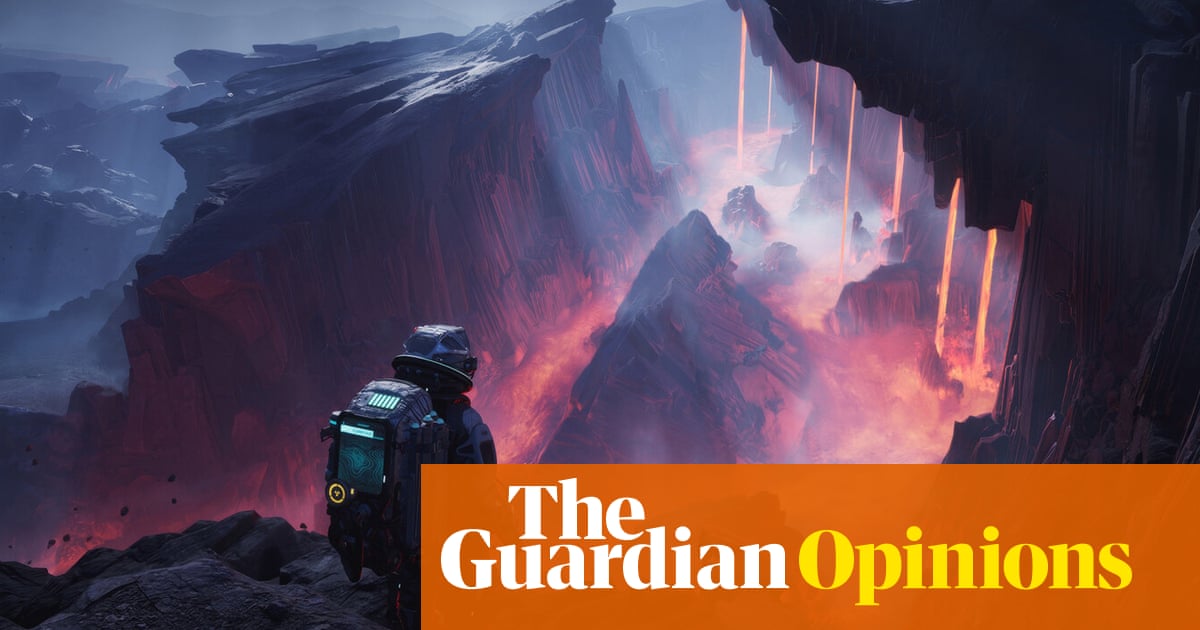Other than during that golden period when they were old enough to play games and watch Buffy the Vampire Slayer but hadn’t yet become evil teenagers, I don’t think I’m very good at parenting. When my kids were babies I felt unnecessary and useless, a feeling I have been reminded of most days since. That’s OK. We can’t be good at everything. I can read words backwards and upside down but I can never find my house keys. I am brilliant at dancing to the Cure’s The Lovecats on Dancing Stage MegaMix but terrible at DIY.
Don’t get me wrong: I love my children. I like hanging out with them socially as young adults because they are smart, funny and entertaining, but then they remember I am their dad, and everything is ruined as they ask me to do stuff then blame me for everything wrong in their lives.
So I took advantage of the fact that they all went away on the same weekend to have some uninterrupted dad time and sink my teeth into a game with depth, without disturbance. That game was The Alters.
I loved the concept. You are stuck on a planet and have to clone different versions of yourself to operate the base and survive. That’s really clever. Even better: you create the clones by looking at your life path and picking moments when you made certain decisions that led to you becoming the Jan Dolski that you are.
For example, if you select the path where you went off to study rather than entering the mines like your dad did, then you clone Jan the Scientist, an ace researcher. If you went to work on oil rigs, you create Jan Worker, a load-lightener. If you decide that all you want to do is sit on your backside all day playing with words, you become Jan Writer. (Except you don’t. There is no Jan Writer option, which shows how useless I would be in a survival situation.)
It’s a compelling game mechanic because you are not only exploring, resource building and problem solving, you are questioning the whole nature of decision making. It makes you go back through your own life, wondering at the choices you made and what could have been different.
This is horribly depressing though and I wouldn’t recommend it. Stick to the game’s story, not your own.
The problem is that the more clones you have in The Alters, the more you have to work to keep them fed, healthy and entertained. And they are needy little bastards whose first language is Whine. It didn’t matter about the fresh food I gave them, the movies I sat through or the games of beer pong I deliberately lost – the Jan Miner character was determined to be grumpy and confrontational, and Jan Scientist was constantly punchably irritating.
Whenever I thought I was triumphing at managing the base – helped by a system that allows you to set up automatic production of important things like radiation filters to keep you safe, and allotting different clones to regularly do specific shifts – I would have to drop what I was doing and run around doing something else for my dependants to keep them happy.
You see where I am going with this?
Sign up toPushing Buttons
Keza MacDonald's weekly look at the world of gaming
after newsletter promotion
The Alters may be pitched as a sci-fi survival game, but really? It’s a parenting sim. The very last thing I want to do with my free time. My failures in the game (and there are many) are accompanied by me screaming at the needy sods to give me a break for five minutes. My neighbours probably still think my kids are still at home.
I have never felt so strongly that I am the wrong person to play a game that is so right. The script and story are strong, almost like an interactive version of Andy Weir’s The Martian. Philosophical concepts are bandied around, such as Camus’s idea that heroism is easy, and it’s doing the normal things that is the real challenge in life. And the graphics are so distinctive and mesmerising they are works of art. The space base moves around like a futuristic take onHowl’s Moving Castle. The game questions the very meaning of existence and what we’re supposed to do with it, and it is moving to witness the clones react to their new reality. Some hate you, others are fascinated, but all at points bond with you over shared memories of everything from Mom’s pierogies and beloved lava lamps to how you dealt with your abusive father.
There is imagination and intelligence in abundance. It would make an incredible novel or animated movie. And 1990s Dominik, who had no kids or responsibilities, would have found marshalling a load of interesting, talented but whiny dependants a fun novelty. It’s like The Game of Life, which was a fun board game to play as kids, but hell when we had two in the back seat of our car. Maybe The Alters is the perfect game for you to play if you arethinkingabout having kids. In fact I urge anyone of child-bearing or rearing age to play it immediately, to see if you are up to the task in real life or if, like me, it all turns out to be too much hard work.
